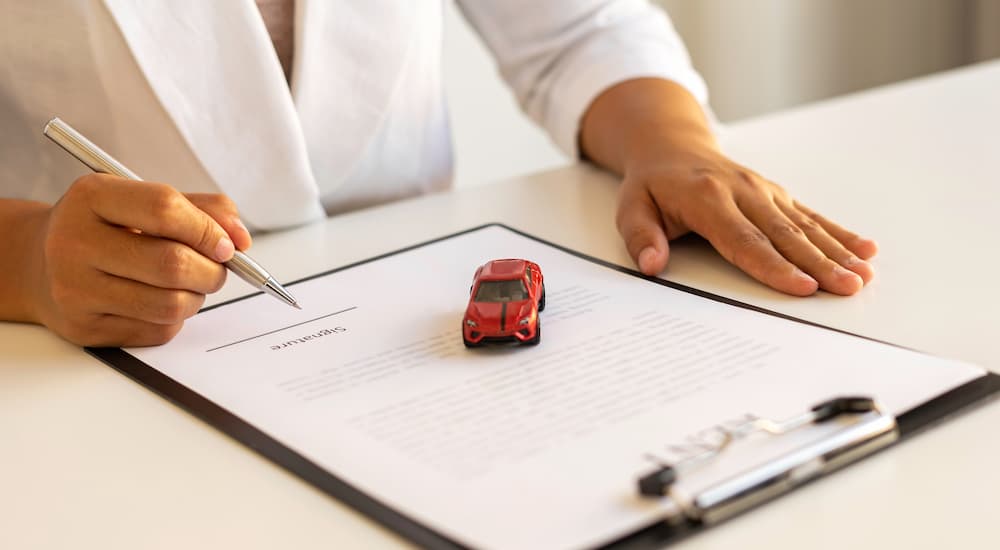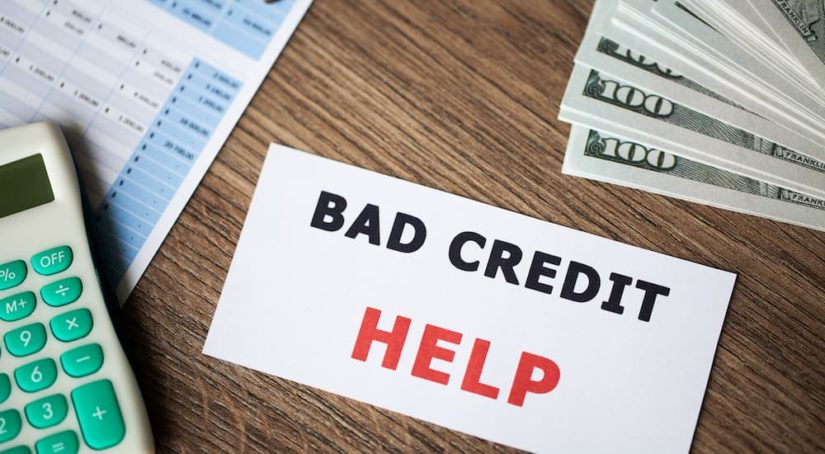Buying a new vehicle with bad credit can seem overwhelming, and maybe even impossible. Thankfully, though, there are options out there that can get you behind the wheel of a new car, even with a poor credit history. Understanding auto loans, your credit, and how to budget for a new vehicle before you begin looking for subprime auto loans will give you a better chance of getting the best deal.
Understanding Your Credit
The first step towards buying a new vehicle is knowing what your credit score is and what it means. Credit scores typically range between 300 to 850. The higher your score, the better chance you have of getting a loan with a lower interest rate. A great starting point is to get a free credit score check at one of many websites that offer them. That way, you know what you’re working with.
According to Credit Karma, some of the leading credit companies consider an ideal score to be between 661 to 780. Your score is impacted by several factors. Payment history will impact your credit score greatly. Making sure you pay your bills on time will keep your credit score healthy.
Credit utilization is another important factor that can lower or raise your credit score. This is your credit balance versus your available credit. If you max out your cards frequently, this will negatively impact your credit. If you keep your balances low compared to your limit, this will keep your credit in a positive range.
Though not as important as credit utilization or payment history, how many credit accounts you have and how long you have had them are other factors that impact your score. Applying for new credit accounts will also impact your credit, but this is a mix of bad and good. When you first apply the hard inquiry will drop your credit score, but this is temporary. In the long term, your credit will improve after opening a new line of credit.
Scores fluctuate often, but don’t panic. If you are paying your bills and keeping your balances low, you will be in a good position. If your score is low, there are a few things you can do to improve it. Some companies like Credit Karma offer an option to dispute a negative reported item on your score. By disputing it, you may be able to get it removed from your account which will improve your credit.
Disputing a negative report is not guaranteed to work, but it is an option. Another option is to reach out to the credit companies and see if they will work with you to reduce payments, provide alternative payment plans, or even remove negative reports. Improving your credit prior to applying for a loan is one of the best ways to get a better deal.
Create a Budget
Before you begin looking for a new vehicle, figure out what you can afford to spend. Think about what your monthly obligations are, what your monthly income is, and what is a reasonable amount you can spend on a vehicle. The last thing you want to do is put yourself into a position where you can’t pay your loan. It’s a good idea to create a budget and stick to it. Know what you can afford each month and don’t go over that estimate.
When budgeting to purchase a vehicle, keep in mind associated costs as well. The price listed on a vehicle typically won’t include taxes and dealer fees. Plus, consider the cost of gas, general maintenance, registration, insurance, and even future potential repairs. Generally, a loan will cover the associated taxes and dealer fees, but that won’t help you at the gas pump.

Look for the Best Second Chance or Subprime Loans
These are loans for those with poor credit who generally won’t qualify for regular loans. One difference is that the interest rate associated with a subprime loan is typically higher to offset the increased risk. There are many specialized lenders that offer subprime auto loans.
Typically, these lenders don’t require a base credit score, but they may require a minimum income each month to qualify. One way these lenders help secure their investment is by using the vehicle itself as collateral. If you default, they take the car as repayment. There are even dealers that offer this type of financing. As long as you continue to make your payments on time, it can be a great solution.
Consider Used Or Certified Pre-Owned
When you look for a new vehicle, it only needs to be new to you. Choosing a used or certified pre-owned vehicle is a great way to save some coin. Reputable dealers often have a myriad of used vehicles available. They typically undergo a thorough inspection prior to being listed, so you know you are getting a quality vehicle, especially if you choose a certified pre-owned vehicle.
Plus, older vehicles usually cost less to insure than new vehicles, meaning you save in several ways. Recalls or common issues have already been discovered, so you know exactly what you are getting yourself into prior to purchasing. Make sure that when you are considering a vehicle, it comes from a reputable dealership with a positive history so that you know their vehicles, new or used, are solid.
Consider a Down Payment Or Trade-In
A down payment is an amount of money that you pay immediately towards a new or used vehicle when you buy it. It can lower your monthly payments and even shorten the length of your loan. Many dealerships offer specials that don’t require down payments, which is great for those who don’t need to worry about monthly payments. However, if your credit is low and you have a risk of high payments, do what you can to put down a down payment. The higher a down payment you can make, the better your chance of getting a loan, and the lower your payments and interest rate will be.
If a down payment isn’t an option and you have an existing vehicle you plan to sell, consider using it as a trade-in. A trade-in is similar to down payment, but instead of cash you are using the value of your existing vehicle. It will reduce your overall costs, which in turn lowers your monthly payments.

What About A Co-Signer?
Sometimes a good old fashioned co-signer is the way to go to get the best deal on your next vehicle. A co-signer is someone who agrees to take over the debt if the primary owner defaults on the loan. If your credit has taken a hit but you have budgeted and know what you can afford, choosing a co-signer with great credit can help you out a lot.
This may not be an option for everybody, but if you can find a co-signer you trust, it can be a great option. Just make sure to stick to your budget and make your payments. You don’t want to overextend yourself and default, causing your co-signer to be in a pickle.
Above All Else, Be Prepared
Shopping for a vehicle is exciting and fun, but often stressful and overwhelming when you have poor credit. You can take some of the stress and uncertainty out of car shopping by being prepared.
Having a budget is key, but so is having a game plan. Do your research. Figure out what kind of vehicles are right for you and what you do and don’t need. Do you really need heated seats or that off-road package? Knowing what you are looking for before you go shopping can save you money.
Research how reliable a vehicle is. That little pickup you had your eye on may be notorious for breaking down every 100 miles. Know your budget, your game plan, and what a vehicle offers, and you will have all the tools you need to find the perfect car that fits you.
Poor Credit? No Problem
Shopping for a vehicle when you have bad credit doesn’t have to be painful. Exploring different options, like second chance loans, using a co-signer, or offering a trade-in can take the sting out of poor credit. Do your research. Set a budget. Explore all options. By being prepared, you stand the best chance of getting a vehicle that won’t let you down from a dealership that will have your back. Once you know your options, you’ll see that poor credit doesn’t mean the end of your car shopping experience.



